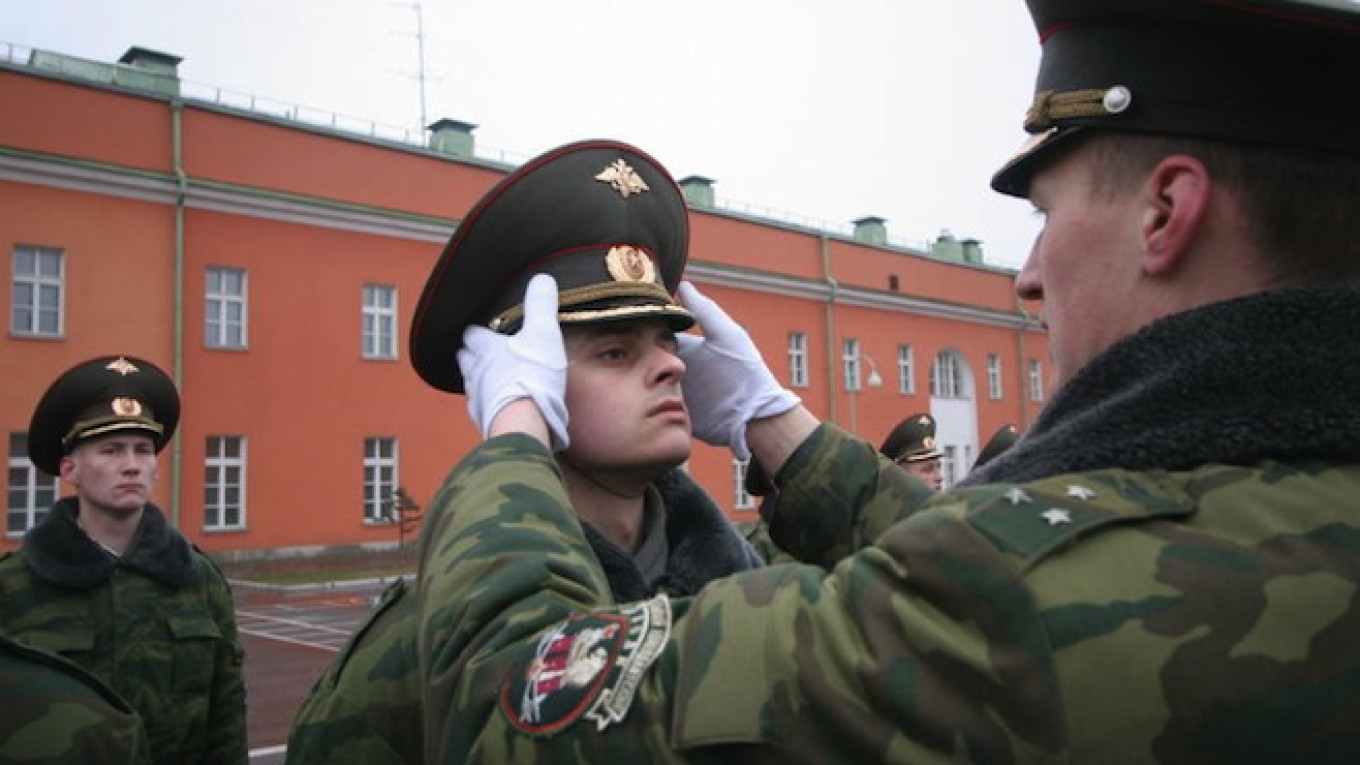Russia's Defense Ministry has proposed that shorter terms be introduced for contract soldiers involved in fighting international terrorism outside Russia, according to a draft bill published Monday on the government's legislation portal.
The current legislation allows soldiers to be employed for terms of two, three or five years, with
exceptions made only in the case of emergency situations such as national disasters, a note on the portal said.
The amendment would allow contracts with a term of between six months and one year to be issued to contract soldiers and reservists engaged in “combating international terrorist activities outside Russia, activities to maintain or restore international peace and security and naval campaigns.”
If passed, the amendment could go into force in August next year, the note said.
Russia announced the start of an air offensive in Syria last month in a military campaign that Western leaders say is designed to help shore up the regime of the country's controversial President Bashar Assad.
A Message from The Moscow Times:
Dear readers,
We are facing unprecedented challenges. Russia's Prosecutor General's Office has designated The Moscow Times as an "undesirable" organization, criminalizing our work and putting our staff at risk of prosecution. This follows our earlier unjust labeling as a "foreign agent."
These actions are direct attempts to silence independent journalism in Russia. The authorities claim our work "discredits the decisions of the Russian leadership." We see things differently: we strive to provide accurate, unbiased reporting on Russia.
We, the journalists of The Moscow Times, refuse to be silenced. But to continue our work, we need your help.
Your support, no matter how small, makes a world of difference. If you can, please support us monthly starting from just $2. It's quick to set up, and every contribution makes a significant impact.
By supporting The Moscow Times, you're defending open, independent journalism in the face of repression. Thank you for standing with us.
Remind me later.


